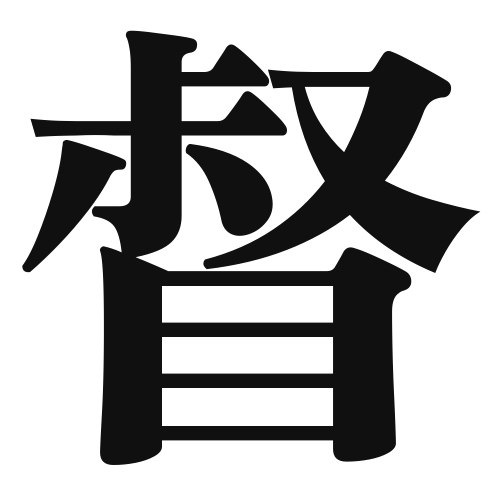1. Overview of Meaning
The kanji “督” (doku) means to supervise or oversee. It conveys the idea of guiding or directing someone or something to ensure proper execution or adherence to rules.
2. Formation and Radical
Formation of the Kanji: The kanji “督” is a phonetic-ideographic character (形声文字). It combines the meaning of supervision with a phonetic component that suggests its pronunciation.
Radical: The radical for “督” is “目” (eye), which often relates to seeing or observing, reinforcing the idea of supervision.
3. Examples of Usage
Common Words and Phrases:
- 督促 (sokudoku) – urging or prompting someone to do something
- 監督 (kantoku) – director or supervisor, often used in film or sports contexts
Example Sentences in Daily Conversation:
- 彼はプロジェクトの進行を督促しています。 (Kare wa purojekuto no shinkō o sokudoku shiteimasu.) – He is supervising the progress of the project.
- 監督はチームを指導しています。 (Kantoku wa chīmu o shidō shiteimasu.) – The director is guiding the team.
4. Synonyms and Antonyms
Similar Kanji:
- 指導 (shidō) – guidance, which emphasizes teaching or instructing rather than just overseeing.
- 管理 (kanri) – management, which focuses more on administration and control.
Antonyms:
- 放任 (hōnin) – neglect or laissez-faire, which means to allow things to happen without supervision.
5. Cultural and Historical Background
Relation to Japanese Culture: The concept of supervision is significant in Japanese culture, especially in hierarchical structures such as workplaces and schools, where guidance and oversight are valued.
Proverbs and Idioms:
- 「目を光らせる」 (me o hikaraseru) – to keep a watchful eye, which relates to the idea of supervision.
